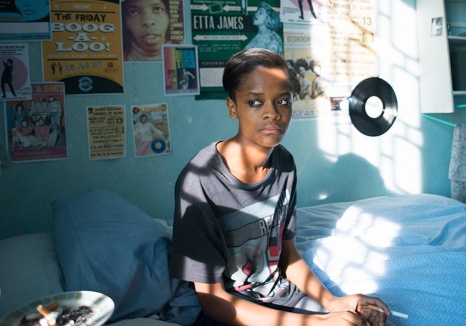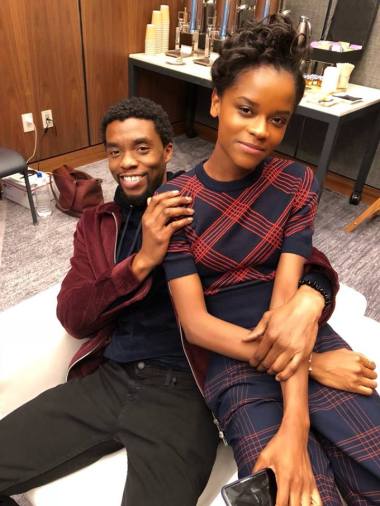You can never tell what people have been through just by looking at them. When we see a somebody reaping success, we only see the tip of the ice berg. We have know knowledge of the hardship they have overcame. We have no idea if that same person has experienced depression in their past. People wouldn’t expect a breakout star like Letitia Wright, to have been in a state of depression, after she stole the show in Black Panther as T’Challa’s upbeat younger sister, Shuri.

The British actress, who was inspired by the movie Akeelah and the Bee to act, struggled to deal with a “repetitive cycle” of depression.
Wright sat down with Teen Vogue where she mentions her past and undergoing her darkest hour.
“It was very, very bad and I didn’t know a way out,” Wright says. “I had many days at my munm’s where she didn’t even know what to do. She was like, ‘What’s going on with you?’ Because we don’t know about that stuff in Guyana, so we don’t take it seriously and it’s like a taboo to feel like that.”
This wasn’t the only time Wright revealed her past to the public. In Essence’s “Yes Girl” podcast, she mentions how she wanted to give up acting, feeling she was stagnant in the industry. Wright would compare herself to actors like Michael B. Jordan and John Boyega, whose careers were taking off. “It was so hard for me to just accept that my path is different, not only with acting but other things too.”
Wright experienced the condition I call White Rabbit Syndrome. This condition named after the character, White Rabbit from Alice in Wonderland, is the feeling of being late, left behind, or not up to par.
After taking a much needed break from acting, Wright became a Christian and found her peace of mind. “I just had to surrender to God,” Wright says. “And I found it really worked for me . . . I realized that acting is not my god. I don’t need to be validated by anybody else, I don’t need to be approved of for my happiness.”
According to the US HHS Office of Minority Health, Black Americans are more likely to feel sad, hopeless, or worthless than are adult whites, which is why Wright is dedicated to becoming mental health advocate.
“In the Black community, it’s something that happens, but we don’t speak about it,” Wright explains. “We have to continue to talk about it and bring it straight to the forefront.”
Wright makes a good point. Many people in the Black community are reluctant about coming forth to share their feelings of depression, fearing they will be judged or even ridiculed. Some would never mention the words counseling or therapy because they would hate to be labeled as “crazy” or “weak”. But we are only human. And as humans, feelings come with the territory. Hiding one’s depression, only makes matters worse. It only makes the situation less likely to being resolved. Speaking up about one’s depression, whether to family, friends, or a higher power, is a bold but necessary move to overcoming it, to regaining peace of mind.

Wright is living proof that sometimes when we lose ourselves and stray from the world and worldly constructs, we can find the guidance, the reassurance, and the clarity we need. The 24-year-old actress has a promising future in the film industry. She has appeared in an episode of Black Mirror called “Black Museum” as well as the Marvel hit Black Panther that is breaking more and more records each passing week. She will also be in the upcoming Steven Spielberg movie, Ready Player One based on the novel with the same name.
